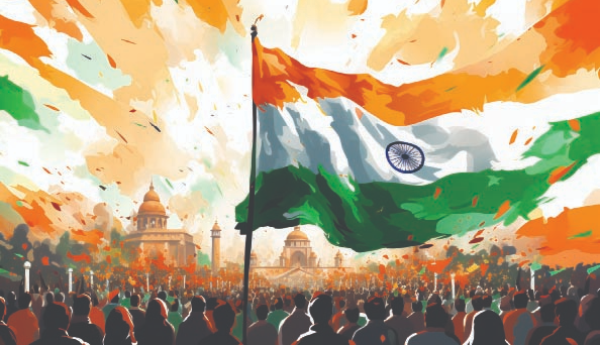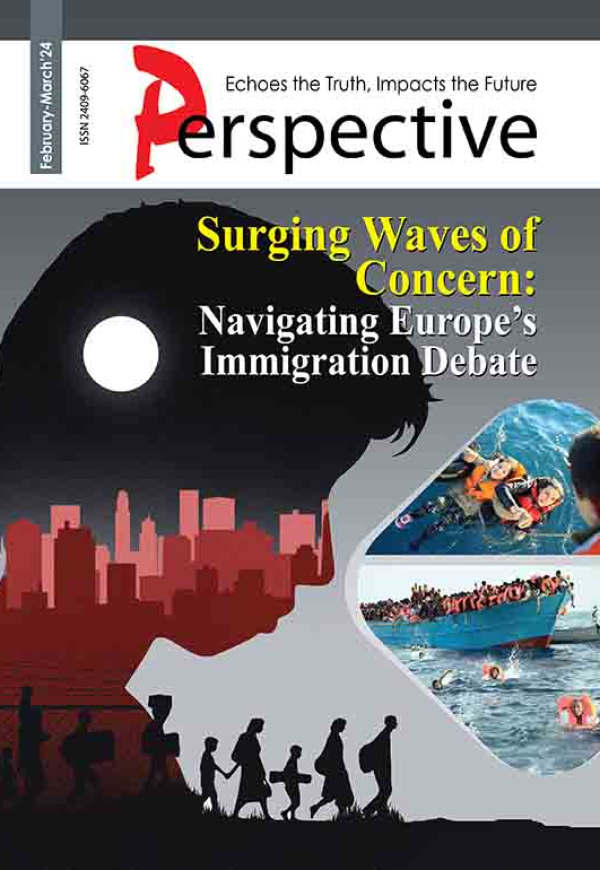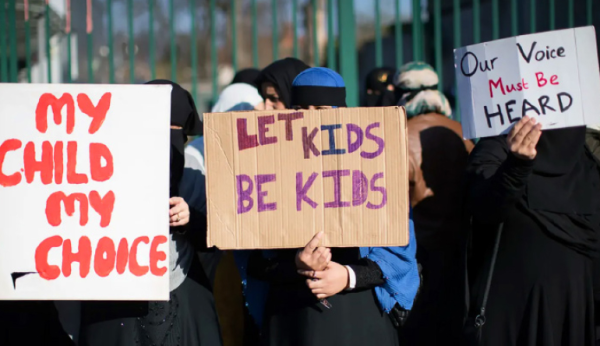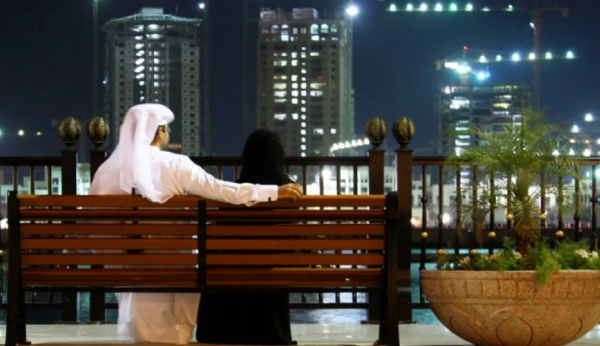The Rohingya crisis stands as one of the most severe and protracted humanitarian emergencies in the world, with profound implications for regional stability and human rights. The Rohingya population in Myanmar has historically been persecuted and subjected to discrimination as the problem has developed. The United Nations (UN) described this cruelty as the worst possible crime against humanity and a textbook example of ethnic cleansing.
The importance of Bangladesh's diplomacy in addressing the Rohingya crisis cannot be overstated. Bangladesh has attempted to put pressure on Myanmar through diplomatic initiatives and engagements to accept its obligations and take real action to end the conflict. With more than 1.3 million Rohingya refugees in total Bangladesh now has the world’s largest refugee camp located in Cox’s Bazar district. Bangladesh has used diplomacy to pressure Myanmar into performing its obligations and coming up with a solution. 1951 Refugee Convention and its 1967 Protocol can show the obstacles and responsibilities of the countries, especially Bangladesh.
Genealogy of the Rohingyas
The Rohingya crisis, unfolding in Myanmar's R akhine State, has captured global attention due to its immense humanitarian implications and complex historical background. Records suggest that the Rohingya, a predominantly Muslim ethnic group, have inhabited the region since at least the 15th century. They have distinct cultural, linguistic, and religious identities, the majority of whom practice Islam.
The historical persecution and discrimination against the Rohingya can be traced back to the post-independence period in Myanmar. The 1982 Citizenship Law removed the Rohingyas' citizenship and right to self-identification. The government of Myanmar has been brutally killing and violently oppressing the Rohingya people for decades, forcing them to flee their homeland and seek refuge in neighboring nations. The government of Myanmar has been brutally killing and violently oppressing the Rohingya people for decades, forcing them to flee their homeland and seek refuge in neighboring nations. The majority of the persecuted Rohingyas fled to Bangladesh.
According to the office of Cox's Bazar District Commissioner, 605,000 Rohingyas landed in Bangladesh's Cox's Bazar district between August 25 and October 25, 2017. The Rohingya camps are concentrated in Cox's Bazar's Ukhiya and Teknaf upazilas. Apart from these two regions, over 200,000 Rohingyas live in the surrounding areas of Ramu, Cox's Bazar pourosova, Bandarban, Chittagong, and other Chittagong district areas.
According to the UN OCHA (2017), till 25 October 2017, the cumulative number of Rohingyas staying in Bangladesh is 1,008,431. These include both old and new entrants. The situation deteriorated in 2012, when communal violence erupted in Rakhine State, pitting the Rohingya against the Buddhist majority population. The violence caused widespread displacement and loss of life, exacerbating tensions and deepening the cycle of violence and persecution.
Factors contributing to the escalation of the crisis
Political, social, and economic issues all contributed to the intensification of the Rohingya conflict and the resulting flow of Rohingya refugees into Bangladesh. Prof Ali Riaz of the Department of Politics and Government at Illinois State University, USA, said Bangladesh was praised in international forums for its caring reaction to Rohingya refugees fleeing Myanmar, but the refugee crisis exposed "how Bangladesh's interests were largely ignored by its friends, such as India, China, and Russia."
Former Bangladesh Ambassador to the United States M Humayun Kabir stated, “We had an expectation that we would get India to stand with Bangladesh in repatriating Rohingyas. We did not get it from our close friend. They should have taken an ethical position on humanitarian grounds at least.” He continued to say that the positions adopted by India and China on the Rohingya crisis indicated that Bangladesh has few friends.
Analysts of international relations have pointed out that Bangladesh is facing geopolitical and geostrategic challenges for three reasons. They are as follows: first, the shelter of Rohingyas escaping Myanmar's Rakhine state; second, the process of their repatriation; and third, the backwardness of deep seaports. These facts indicate that Bangladesh has a lack of diplomatic moves. China, one of Bangladesh's largest development partners, was not in Bangladesh's favor.
Prospects of Repatriation
Rohingyas have limited civil liberties in Myanmar as citizens. Consequently, many of the Rohingyas who were repatriated to Myanmar returned to Bangladesh again. This brings the challenge to the sustainability of durable solutions. According to a recent study, 67% of the Rohingya refugee population in Bangladesh said they would be prepared to return to their homes in Myanmar provided the government satisfied certain requirements. The state of origin rarely cares about its reputation as a "persecutor" and shows little interest in accepting the refugees when population expulsion is a military tactic or a component of a larger policy of exclusion. Currently, if the Rohingya return to Myanmar, they will most likely be placed in camps that have been heavily criticized for lacking basic amenities.
The Bangladeshi consensus on not allowing Rohingyas local integration originates from the fact that the nation is already overpopulated. The labor market is often overloaded and unable to employ around 40% of its people. Bangladesh would suffer if one million Rohingyas were granted citizenship. It may fuel nationalist sentiments against foreigners and negatively impact domestic politics. Bangladesh's capacity to integrate Rohingyas raises three questions: Where should Rohingyas be housed? How would the citizens react? Who is paying the cost of the settlement?
In terms of the goals and perspectives of developed nations with refugee integration policies, the prospect of resettlement solutions varies. However, the lack of legal requirements, financial incentives for resettlement states and rising xenophobia at the domestic level all have an impact on the possibility of third-country resettlement.
There are several cases of resettling refugees from actual war, natural disasters, and ethnic conflicts in foreign countries. In 2016, Canada alone took in 25,000 Syrian refugees, compared to approximately 300,000 asylum applicants in Europe and Germany. The special representative of the Prime Minister of Canada suggested that Canada accept refugees from the Rohingya Community. In reality, traditional resettlement states like Canada, Australia, and the USA are reluctant to take in large numbers of Rohingya refugees, as they have been in other refugee crises. This shows that wealthier members of the international community are not doing enough to share the load. Mallick (2020) demonstrated how these factors create barriers to Rohingya repatriation.
Sustainable repatriation is a process by which refugees become self-sufficient and capable of supporting themselves, enabling them to fully integrate and participate in the economic and social life of their home country or new nation on an equal footing with the host community. The 1951 Convention on Refugees and its 1967 protocol identify voluntary repatriation, local integration, and third-country relocation as the three pillars of lasting solutions.
Thus, repatriation—as a "solution" to the refugee problem—must involve the process of national recognition and the restoration of a broad range of political, social, and civil rights that together constitute meaningful citizenship. Generally, voluntary return is seen as the most desirable solution to refugee difficulties because of the guarantee of voluntariness, the clarification of security, and the support of people's permanent return and reintegration into their communities in non-political settings.
The second most used and preferred long-term solution is Local integration. According to Article 34 of the 1951 Convention on Refugees, “the contracting states shall as far as possible facilitate the assimilation and naturalization of refugees”.
The only option for refugees who cannot return to their country of origin or stay in their nation of refuge securely is resettlement in a third country. Usually, such a decision is made only when all other alternatives have been explored and there is no other way to ensure the legal and physical protection of the affected parties. Repatriation is defined as the restoration of a refugee's "right to have rights" through the restoration of citizenship. It refers to a political process that involves reshaping the political community in order to effectively and meaningfully restore the political, social, economic, and cultural rights of refugees.
Durable repatriation approach
A durable repatriation approach requires a long-term commitment from all stakeholders involved, including the governments of Myanmar, Bangladesh, and the international community. It should prioritize the rights, safety, and well-being of the Rohingya population and seek to address the root causes of their displacement to ensure a sustainable and just resolution to the crisis.
International support is crucial for the success of durable repatriation. The involvement of international organizations, such as the United Nations and relevant human rights bodies, can provide expertise, financial assistance, and monitoring mechanisms to ensure the protection of the rights of returnees. International monitoring can help track progress, identify challenges, and hold all parties accountable for their commitments.
Rohingya refugees should choose repatriation freely and informedly. They should be informed about security, services, and employment possibilities in their home countries. Repatriation should involve Rohingya consultation and decision-making. Rohingya returnees must be secured. This addresses Rohingya fears about returning to violence, persecution, or marginalization. International peacekeeping forces or monitoring mechanisms might make returnees feel safe.
The author of this article is studying at the Department of International Relations, University of Dhaka.

 Anas Ibne Monir
Anas Ibne Monir 









